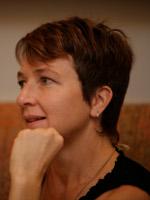Ackbar Abbas is a Professor of Comparative Literature at the University of California, Irvine. His research interests include globalization, Hong Kong and Chinese culture, architecture, cinema, postcolonialism, and critical theory. He is the author of Hong Kong: Culture and the Politics of Disappearance (Minneapolis: University of Minnesota Press, 1997).
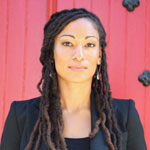 Ruha Benjamin
Ruha Benjamin
Can the Subaltern Genome Code?
Rethinking race, science, and subjectivity
Ruha Benjamin is a professor of African American Studies at Princeton University and author of People’s Science: Bodies and Rights on the Stem Cell Frontier (Stanford University Press 2013). Her work examines the relationship between science, medicine, and society, with a particular emphasis on processes of racialization and commercialization. Her current project, Provincializing Science: Mapping and Marketing Ethnoracial Diversity in the Genomic Age, examines the uptake of genomic science in South Africa and India, with a focus on how social categories such as race and caste are incorporated in to scientific practices and how non-scientists are participating in the implementation of public research initiatives.
Ruha received her BA in Sociology and Anthropology from Spelman College and her MA and PhD in Sociology from UC Berkeley. She also completed a postdoctoral fellowship at UCLA’s Institute for Society and Genetics, and was recently awarded an American Council of Learned Societies fellowship and a faculty fellowship at Harvard University’s Science, Technology, and Society Program. Ruha also serves on the editorial board of the New York University book series, Biopolitics: Medicine, Technoscience, and Health in the Twenty-First Century and is actively involved in a community-based initiative called the Race, Education, and Democracy STEM Network, which seeks to transform the relationship of Black and Latino communities to science and technology. For more info: www.ruhabenjamin.com
 Keith Breckenridge
Keith Breckenridge
Histories of and Against Race in Durban
Keith is an Associate Professor and the Deputy Director at Wiser. He writes about the cultural and economic history of South Africa, particularly the gold mining industry, the state and the development of information systems. In the1980s he studied at Wits and Johns Hopkins and went on to complete his PhD at Northwestern in 1995. He has just completed Biometric State: the Global Politics of Identification and Surveillance in South Africa a book project that shows how the South African obsession with Francis Galton’s universal fingerprint identity registration served as a 20th century incubator for the current systems of biometric citizenship being developed throughout the South. The book will be published by Cambridge University Press in 2014. He has also published quite widely on the history and contemporary politics of biometrics, with important papers in Africa, History Workshop, the Journal of Southern African Studies, Public Culture and comparative anthologies on systems of identification. This interest in biometrics has also drawn him in to the global institutional history of state documentation, especially the forms of birth, death and marriage registration that are ubiquitous (but very poorly understood) in Europe, Asia and the Americas (see http://wiser.wits.ac.za/
http://wiser.wits.ac.za/users/keith-breckenridge ![]() @BreckenridgeKD
@BreckenridgeKD
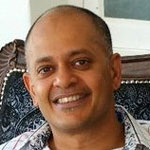 Sharad Chari
Sharad Chari
Utopias and Oceans: Liquid Archives
Sharad Chari is Associate Professor at the Centre for Indian Studies and the Department of Anthropology at the University of the Witwatersrand. He has a PhD in Geography from the University of California at Berkeley, after which he was a Postdoctoral Fellow at the Michigan Society of Fellows at the University of Michigan. He has taught in the Anthropology and History Departments at Michigan, the School of Development Studies at UKZN in Durban, Geography and Environment at the LSE, and Metropolitan Studies at NYU’s London campus. An ethnographer who uses tools from geography, social anthropology and history, his research has ranged from work politics and trajectories of capital, to state racisms and the biopolitics of segregation. He is the author of Fraternal Capital (2004, Stanford), co-editor of The Development Reader (2008, Routledge), and is completing a monograph currently called Apartheid Remains. He is an associate editor of the journal Antipode: A Radical Journal of Geography, and has published in various places including Comparative Studies in Society and History, Radical History Review, The Journal of the Royal Anthropological Institute, Transactions of the Institute of British Geographers, African Studies, Historical Materialism, World Development and The South Atlantic Quarterly.
 Angela Davis
Angela Davis
Anti-Racism: Transnational Solidarities
Angela Y. Davis is known internationally for her ongoing work to combat all forms of oppression in the U.S. and abroad. Over the years she has been active as a student, teacher, writer, scholar, and activist/organizer. She is a living witness to the historical struggles of the contemporary era.
Professor Davis’s political activism began when she was a youngster in Birmingham, Alabama, and continued through her high school years in New York. But it was not until 1969 that she came to national attention after being removed from her teaching position in the Philosophy Department at UCLA as a result of her social activism and her membership in the Communist Party, USA. In 1970 she was placed on the FBI’s Ten Most Wanted List on false charges, and was the subject of an intense police search that drove her underground and culminated in one of the most famous trials in recent U.S. history. During her sixteen-month incarceration, a massive international “Free Angela Davis” campaign was organized, leading to her acquittal in 1972.
Professor Davis’s long-standing commitment to prisoners’ rights dates back to her involvement in the campaign to free the Soledad Brothers, which led to her own arrest and imprisonment. Today she remains an advocate of prison abolition and has developed a powerful critique of racism in the criminal justice system. She is a founding member of Critical Resistance, a national organization dedicated to the dismantling of the prison industrial complex. Internationally, she is affiliated with Sisters Inside, an abolitionist organization based in Queensland, Australia that works in solidarity with women in prison.
Like many educators, Professor Davis is especially concerned with the general tendency to devote more resources and attention to the prison system than to educational institutions. Having helped to popularize the notion of a “prison industrial complex,” she now urges her audiences to think seriously about the future possibility of a world without prisons and to help forge a 21st century abolitionist movement.
During the last twenty-five years, Professor Davis has lectured in all of the fifty United States, as well as in Africa, Europe, the Caribbean, and the former Soviet Union. Her articles and essays have appeared in numerous journals and anthologies, and she is the author of nine books, including Angela Davis: An Autobiography; Women, Race, and Class; Blues Legacies and Black Feminism: Gertrude “Ma” Rainey, Bessie Smith, and Billie Holiday; The Angela Y. Davis Reader; Are Prisons Obsolete?; a new edition of Narrative of the Life of Frederick Douglass; and The Meaning of Freedom.
Former California Governor Ronald Reagan once vowed that Angela Davis would never again teach in the University of California system. Today she is Distinguished Professor Emerita in the History of Consciousness and Feminist Studies Departments at the University of California, Santa Cruz. In 1994, she received the distinguished honor of an appointment to the University of California Presidential Chair in African American and Feminist Studies.
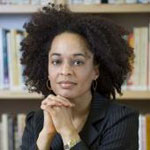 Gina Dent
Gina Dent
Black Popular Culture in the age of the commodity
Gina Dent is an Associate Professor of Feminist Studies at the University of California, Santa Cruz.She holds a Ph.D. in English & Comparative Literature from Columbia University.
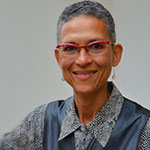
Philomena Essed
Dutch Racism
Philomena Essed has a PhD from the University of Amsterdam (1990) and an Honorary Doctorate from the University of Pretoria (2011). She is Professor of Critical Race, Gender and Leadership studies, Antioch University (USA), PhD in Leadership and Change Program and Guest Professor at Umeå University, Department of Education (Sweden). Her research and teaching transcends national, cultural and disciplinary boundaries. Well known for introducing the concepts of everyday racism and gendered racism in the Netherlands and internationally, her work has been adopted and applied in a range of countries, including the US, Canada, South Africa, Sweden, Finland, Russia, the UK, Switzerland, and Australia. She has lectured in many countries – from Germany to Brazil; from South-Africa to Canada – and published numerous articles in English and in Dutch, some of which have been translated into French, German, Italian, Swedish and Portuguese. Her books include Everyday Racism; Understanding Everyday Racism; and Diversity: Gender, Color and Culture. Co-edited Volumes: Race Critical Theories; Refugees and the Transformation of Societies; A Companion to Gender Studies (‘outstanding’ 2005 CHOICE award), Clones, Fakes and Posthumans: Cultures of Replication, (2012) and Dutch Racism (2014). Her current research focuses on dignity as experience, culture, and leadership practice.
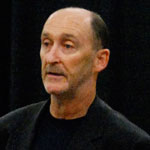 David Theo Goldberg
David Theo Goldberg
The History of Anti-Racism: Commemorating Stuart Hall
Director of the University of California Humanities Research Institute and Executive Director of the MacArthur Digital Media and Learning Research Hub; Professor, Comparative Literature, Anthropology, and Criminology, Law and Society at the University of California, Irvine. Directs the annual, global MacArthur-HASTAC Digital Media and Learning Competition. Author, inter alia, of Sites of Race (with Susan Giroux, Polity, 2014); The Threat of Race: Reflection on Racial Neoliberalism (Wiley-Blackwell, 2009); The Future of Thinking: The Impact of Digital Media on Higher Learning (with Cathy Davidson, MIT Press, 2009); The Racial State (Blackwell, 2002); Racist Culture: Philosophy and the Politics of Meaning (Blackwell, 1993). Editor, inter alia, of Between Humanities and the Digital (with Patrik Svensson, MIT Press, 2015); The Blackwell Companion on Gender Studies (with Philomena Essed and Audrey Kobayashi, Blackwell 2003); The Blackwell Companion on Racial and Ethnic Studies (with John Solomos, Blackwell, 2002); Relocating Postcolonial Studies (with Ato Quayson, Blackwell, 2002); Race Critical Theories (with Philomena Essed, 2002); Multiculturalism: A Critical Reader (Blackwell 1994); and Anatomy of Racism (University of Minnesota Press, 1991).
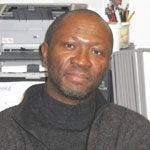 Siba Grovogui
Siba Grovogui
Race to Commonwealth: Archiving the Universalism in International Law
Siba Grovogui is a Professor at the Africana Studies & Research Center, Cornell University. A specialist in international relations theory and political theory, Grovogui has written frequently about African sovereignty, including Sovereigns, Quasi-Sovereigns, and Africans: Race and Self-Determination in International Law (1996) and “Regimes of Sovereignty: Rethinking International Morality and the African Condition.” He taught previously at Johns Hopkins University and Eastern Michigan University and holds a PhD from the University of Wisconsin at Madison and a law degree from the Institut Polytechnique Gamal Abdel Nasser in Guinea.
Ghassan Hage is the Future Generation Professor of Anthropology and Social Theory at the University of Melbourne. He is a member of the Australian Academy of the Humanities and is currently the president of the Australian Anthropological Society. He works on the comparative anthropology of racism, nationalism and multiculturalism particularly in Australia and the Middle East. He has written and conducted fieldwork on the Lebanese transnational diaspora in Australia, the US, Europe, Canada and Venezuela. He also researches and writes in social theory, particularly the work of Pierre Bourdieu. He has held a post-doctoral research position and a visiting professorship at Pierre Bourdieu’s research centre in Paris at the Ecole des Hautes Etudes en Sciences Sociales. He has also held a number of visiting professorships including at the American University of Beirut, University of Nanterre – Paris X, the University of Copenhagen and Harvard. His most well-known works are White Nation: Fantasies of White Supremacy in a Multicultural Society (Routledge 2000) and Against Paranoid Nationalism (Commeford and Miller 2003). His forthcoming works includes Alter-Politics: Critical Thought and the Radical Imagination (February 2015, Melbourne University Press). He is currently writing a short book with the working title: Are Racists Dangerous to the Planet? for Polity Press dealing with the intersection between racism and the ecological crisis.
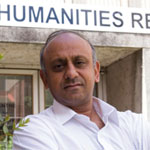 Premesh Lalu
Premesh Lalu
A Dead Archive? Non-Racialism’s Demise in Cape Town
Premesh Lalu is Professor of History at the University of the Western Cape (UWC).
He is also Director of the Centre of Humanities Research and convenes the Programme on the Study of the Humanities in Africa at UWC.
Bronwyn Law-Viljoen is a senior lecturer and head of Creative Writing at the University of the Witwatersrand, the editor and co-founder of Fourthwall Books, and a former editor of Art South Africa magazine. She received her doctorate in literature at New York University as a Fulbright scholar in 2003. She taught writing and literature at New York University, and completed an extended internship at the Aperture Foundation in New York before returning to South Africa to take up the post of Managing Editor at David Krut Publishing. She has contributed to and edited many books on art, design, and architecture in South Africa, including Fire Walker: William Kentridge, Gerhard Marx (with Oliver Barstow, Fourthwall Books), William Kentridge Nose, Dis-Location / Re-Location, Art and Justice: The Art of the Constitutional Court of South Africa, TAXI-015 Paul Stopforth, Handspring Puppet Company, TAXI-014 Mmakgabo Mmapula Mmankgato Helen Sebidi, Light on a Hill: Building the Constitutional Court of South Africa,and William Kentridge Flute (all David Krut Publishing). She has written essays on South African art and photography for a number of magazines and journals, including Art South Africa, Aperture magazine, Art on Paper, Theory, Culture and Society, Literature and Theology, and Scrutiny 2, and has contributed chapters to a number of books both locally and internationally. She appeared in the Mail & Guardian’s Book of 100 Women 2011 for her work in publishing. She is currently writing her first novel.
Alex Lichtenstein is Associate Professor of History at Indiana University, Bloomington, where he teaches US and South African history. His research focuses on the intersection of labor history and the struggle for racial justice in societies shaped by white supremacy. His first book, Twice the Work of Free Labor examined the role of convict leasing and chain gangs in the remaking of the American South in the half century after the Civil War.
Currently a research fellow at Humboldt University’s Center on Work and Human Lifecycle in Global History, he is working on a book on South African labor organizing and the state under the apartheid regime, tentatively entitled Making Apartheid Work: Industrial Relations and the South African State, 1948-1994. In particular, he plans to explore the way African factory workers under apartheid used the small concessions granted to them by employers and the state to build shop-floor networks that eventually formed the basis for factory-based anti-apartheid struggles. He has also curated an exhibit of photographs taken by Margaret Bourke-White in South Africa in 1950 that will be at the Durban Art Gallery during the JWTC’s visit.
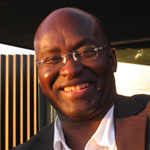 Achille Mbembe
Achille Mbembe
Conversation about Non-Racialism in South Africa
Raceless Futures in Critical Black Thought
Professor Achille Mbembe, born in Cameroon, obtained his Ph.D in History at the Sorbonne in Paris in 1989 and a D.E.A. in Political Science at the Institut d’Etudes Politiques (Paris). He was Assistant Professor of History at Columbia University, New York, from 1988-1991, a Senior Research Fellow at the Brookings Institute in Washington, D.C., from 1991 to 1992, Associate Professor of History at the University of Pennsylvania from 1992 to 1996, Executive Director of the Council for the Development of Social Science Research in Africa (Codesria) in Dakar, Senegal, from 1996 to 2000. Achille was also a visiting Professor at the University of California, Berkeley, in 2001, and a visiting Professor at Yale University in 2003. He has written extensively in African history and politics, including La naissance du maquis dans le Sud-Cameroun (Paris, Karthala, 1996). His latest work On the Postcolony was published in Paris in 2000 in French and the English translation has been published by the University of California Press, Berkeley, in 2001.
http://wiser.wits.ac.za/users/achille-mbembe
 Dilip Menon
Dilip Menon
Race, Space and Grace: Imagined affinities across India, South Africa and the USA
Dilip Menon studied in Delhi, Oxford (Balliol) and Cambridge (Trinity) and was a Fellow of Magdalene College Cambridge before returning to India to take up teaching posts and fellowships in Trivandrum, Hyderabad and Delhi. He has held post doctoral and teaching positions at Cambridge, Yale, ZMO (Berlin)and MSH (Paris). He has published three books and several articles on caste, socialism and modernity in India. Menon is currently the Mellon Chair in Indian Studies at the University of Witwatersrand.
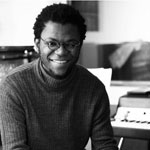 Neo Muyanga
Neo Muyanga
Black Popular Culture in the age of the commodity
Musical Performances
Neo Muyanga was born in Soweto. He studied the Italian madrigal tradition with choral maestro, Piero Poclen, in Trieste, Italy. In the mid 90’s he co-founded the acoustic pop duo, BLK Sonshinewith Masauko Chipembere, garnering a following throughout Southern Africa and Internationally.
Neo writes music plays, chorus songs and has a variety of works for chamber and large ensemble (his operetta, “the Flower of Shembe”, premiered to critical acclaim in 2012). He continues to tour widely both as a solo performer and in various band guises.
Neo co-founded the Pan African Space Station in 2008 with Chimurenga’s publishing editor, Ntone Edjabe, as a continually evolving host of cutting-edge Pan African music and sound art on the internet and across stages in Cape Town and other parts of the globe.
For more details see: www.neosong.net and www.panafricanspacestation.org.za
Michael Keith
Wageless Life
Mlungisi Dlamini
Places of Refuge from Apartheid
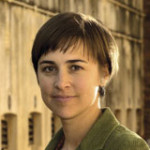 Kelly Gillespie
Kelly Gillespie
The Trouble with Non-Racialism
Kelly Gillespie is a senior lecturer in the Department of Anthropology at the University of the Witwatersrand. She received her PhD in Anthropology, titled Criminal Abstractions and the Post-apartheid Prison, from the University of Chicago in 2007, her research focusing on the project of incarceration in post-apartheid South Africa. Dr Gillespie’s research interests include criminal justice, legal anthropology, South African history, race, and sexuality. Her current research is on intimate violence and its refashioning of the relationship between public and private spheres, as well as on the life of judgment in criminal courts. She is busy working on a book manuscript provisionally titled ‘Cramped Time: The Dialectics of Punishment in Post-Apartheid South Africa’. Dr Gillespie is a convener of the Johannesburg Workshop in Theory and Criticism, based at WISER.
http://www.wits.ac.za/staff/kelly.gillespie.htm
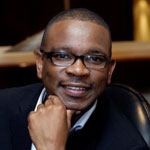 Xolela Mangcu
Xolela Mangcu
Black Consciousness Yesterday and Today
Xolela Mangcu is Associate Professor of Sociology at University of Cape Town. He holds a BA and MSc from the University of Witwatersrand and a PhD from Cornell University.
 Françoise Vergès
Françoise Vergès
Strange Fruits: Bananas, Racism, Sex, and Capitalism
Françoise Vergès grew up in Reunion Island in a communist, anti-colonialist and feminist family. She obtained her baccalaureat in Algeria, and has lived France, Mexico, the United States, and England. In the 1970s-1980s, she was a journalist in feminist monthly and weekly, an editoir in a feminist publishing house, and worked in anti-racist and anti-imperialist movements in France. She moved to the USA in 1893 and got her Ph.D. at the University of Berkeley in Political Theory (1995). She has written extensively on vernacular practices, memories of colonial slavery and colonialism, postcolonial psychiatry, museography, the routes of migration and processes of creolization in the Indian Ocean world.
Between 2003 and 2010, she was head of the scientific and cultural program for a museum that was to be built in Reunion Island. The objective was to valorize intangible culture, the millenary world of exchanges and encounters in the Indian Ocean between Asia, Africa, the Muslim World and Europe, the dynamic of centers and peripheries through history, and the cultural creativity in the contact-zones. Françoise Vergès defended the principle of a “museum without objects.” She was active in the inscription of maloya, the music created by African and Malagasy slaves and enriched by Indian indentured workers on the World Heritage Immaterial Culture List (UNESCO) in 2009. Between 2008 and 2012, she was president of the Committee for the Memory and History of Slavery in France, created in application of the May 21st 2001 Law (Loi Taubira) recognizing slave trade and slavery “crime against humanity.”
Françoise Vergès contributed to a 2001 IRD/CODESRIA project “A Corridor of Cities” with a study of Chinese restaurants in Durban, Maputo, Dar es Salaam and Port-Louis and to the 1998 MacArthur/CODESRIA research program “Real Economies in Africa” with the project “Mapping a Contact-Zone” on the Indian Ocean southwest.
She collaborates with filmmakers and artists (Isaac Julien, Yinka Shonibare, Arnaud Ngatcha, Jérôme Sesquin, Kader Attia…). She was project advisor for Documenta 11 and organized for the 2012 Paris Triennial the program “The Slave in Le Louvre”. She has been working as an independent curator on exhibitions about colonial practices and continues to participate in anti-racist politics.
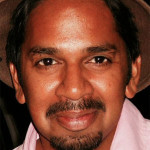 Riason Naidoo
Riason Naidoo
Histories of and Against Race in Durban
Is an artist and curator by training. He most recently co-curated A Portrait of South Africa: George Hallet, Peter Clarke & Gerard Sekoto at the Cite Internationale des Artes, Paris as part of the South African Season in France (2013). In January 2013 he co-curated (with Tessa Jackson) a retrospective exhibition on veteran artist Peter Clarke (b. 1929), entitled Wind Blowing on the Cape Flats at the Institute of International Visual Arts (INIVA), London. In 2012 he was one of three curators of the 10th edition of the Dak’art in Senegal, the biennale of contemporary African art. Shortly after being appointed director at the Iziko South African National Gallery (2009-2014) he curated 1910-2010: From Pierneef to Gugulective, an extensive exhibition of almost 600 artworks that showcased a century of South African art. Prior to this he curated The Indian in DRUM magazine in the 1950s, a research based photographic exhibition from the Bailey’s African History Archive (BAHA), that toured South Africa from 2006 to 2011. He published a book by the same title (Bell-Roberts Publishing, 2008). In 2012/13 he co-produced and co-directed, with Damon Heatlie, the documentary entitled Legends of the Casbah – based on the DRUM project – which premiered at the 33rd Durban International Film Festival. From 2004-2007 he curated several exhibitions on the work of veteran photographer Ranjith Kally (b.1925) that was shown in Johannesburg and Durban and that travelled to museums in Mali, Austria, Spain, and France. Aside from curating he directed the South African-Mali: Timbuktu Manuscripts Project for the South African Presidency and the Department of Arts & Culture (2003-2009), also NEPAD’s first cultural project. He was in charge of artistic projects at the French Institute of South Africa (IFAS) in Johannesburg (2001-2003); taught drawing, painting, and art history at the University of Witwatersrand (1999-2001); and led the art education department at the Durban Art Gallery (1996-1999). He graduated with a BA and MA in Fine Art from Wits University. He was born in Chatsworth, Durban.



